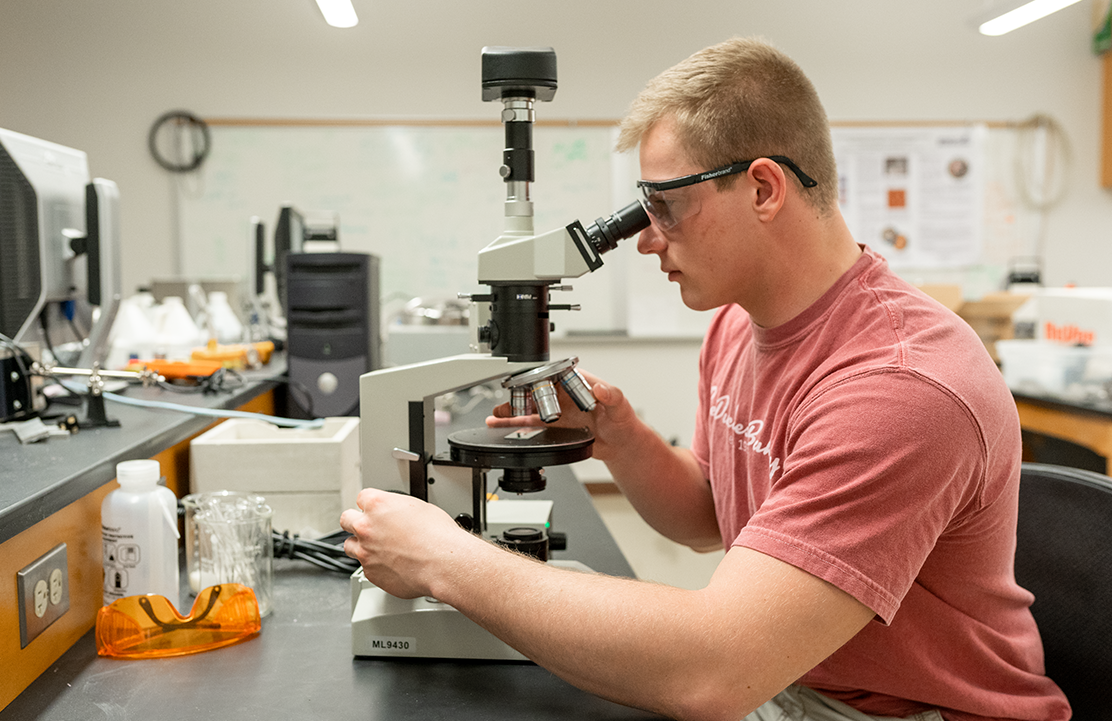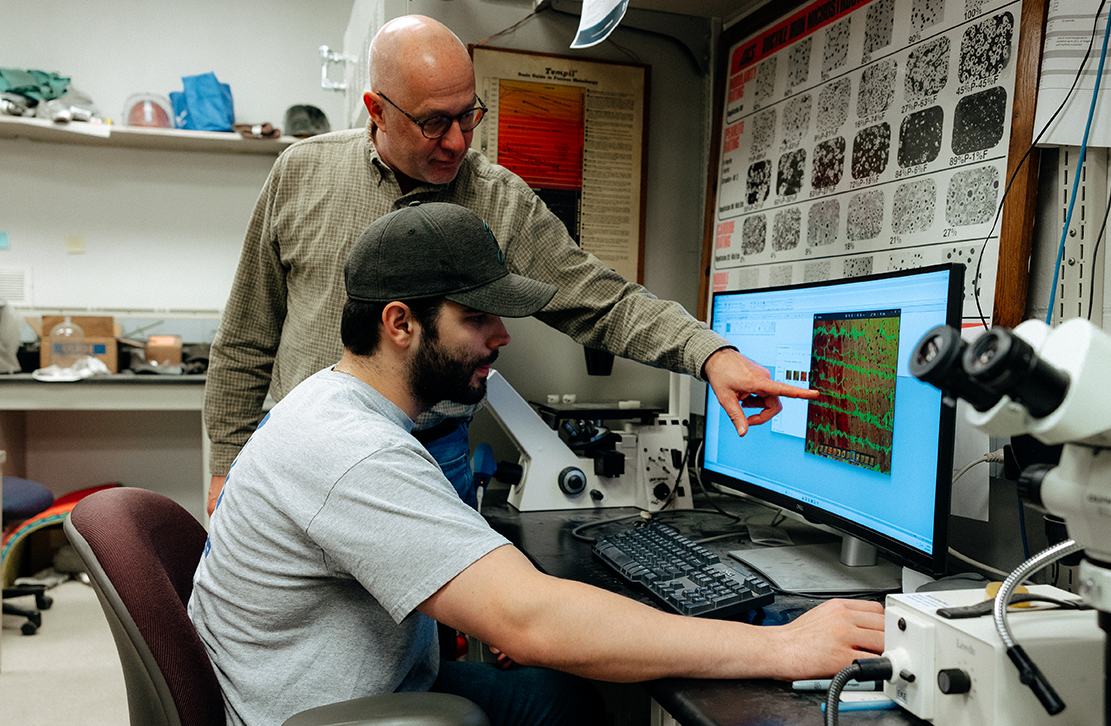Materials Science and Engineering
Materials Science and Engineering professionals generate innovations, make technological advancements, and work to find solutions to global challenges in many areas such as manufacturing and transportation where materials are key.
Materials Science is an interdisciplinary field that integrates principles from physics, chemistry, and engineering to understand and manipulate the properties of materials. In this major, you'll delve into the structure, composition, and processing of materials, aiming to optimize their performance in various applications. Whether you’re working with metals, polymers, ceramics, or composites, you’ll learn to tailor materials for specific purposes, such as improving strength, conductivity, or durability.
At UNI, our curriculum includes hands-on laboratory work that builds on our university’s strength in metal casting, additive manufacturing, and nanofabrication. You’ll have the chance to work directly with our expert faculty members on cutting-edge research, or, get paid to intern with a local company like John Deere, Collins Aerospace, BAE systems and other companies who routinely hire our students.

Greatest Value
UNI offers the least expensive four-year engineering-related programs in Iowa.
Growing Field
Materials Science & Engineering jobs will increase at a higher rate (6%) than mechanical engineering (2%) and electrical & electronic engineering (3%) over the next 10 years according to the U.S. Bureau of Labor Statistics.
Integrative Expertise
This major takes advantage of existing faculty expertise in materials science from three departments; Chemistry & Biochemistry, Physics, and Applied Engineering.
Program Curriculum
The Materials Science & Engineering program has developed its curriculum utilizing recommendations from a very active advisory board made up of industry professionals. UNI's curriculum is developed by industry - for industry.
Career Outlook
There’s an unmet need for materials science and engineering professionals in Iowa. A survey of these industry leading companies indicate a need for workers with skills in: alloy design, materials development, and materials selection. The skills required for high-tech manufacturing and analysis jobs require a 4-year degree, and with their hands-on experiences and skilled training, our students are highly sought after.
Transfer to UNI
Transferring to UNI couldn't be easier. Check out our transfer guides to learn more about how community college credits can transfer to UNI.
Materials Science & Engineering vs Materials Science Engineering Technology
Which program is right for me?
Materials Science & Engineering B.S.: The Materials Science & Engineering major is a more science-focused degree, preparing students for careers in research, design, prototyping, and analysis that require a high level of mathematics and computation. This is a 90-credit hour major, with a 47 credit hour materials science and engineering core. The remaining 43 credit hours will be comprised of math, chemistry and physics foundational courses.
Materials Science Engineering Technology B.S.: The Materials Science Engineering Technology major takes a more applied, industry-based manufacturing approach, preparing students for careers in design implementation, testing, and manufacturing, which require extensive practical experience from applied engineering laboratory work. This major requires 74 credit hours, and shares many of the materials science and engineering core courses with the Materials Science & Engineering program.
Find out More About Materials Science and Engineering
Fill out your information here and we'll be in touch!
Contact us directly at:
Department of Applied Engineering
University of Northern Iowa
1025 Applied Engineering Building
Cedar Falls, IA 50614
Phone: 319-273-2561
Email: appliedengineering@uni.edu

What sort of career can I get with this degree?
A materials science and engineering degree can lead to a variety of careers spanning fields such as electronics, energy, healthcare, manufacturing, aerospace, defense, biotechnology and more.
Common job titles include:
- Design engineer
- Materials engineer
- Metallurgist
- Product/process development scientist
- Research scientist

Hands-On Learning
Some of the most impactful learning experiences happen beyond the textbook. As a Materials Science and Engineering major, you'll learn by doing. Get involved in our ongoing nanofabrication research, or find part-time work at our internationally recognized Metal Casting Center or Foundry 4.0 Center. We’ll also connect you with paid internships at industry-leading companies like John Deere, Collins Aerospace, Garmin, and more. These internships give our students in-demand, employable skills, and often lead to full-time job offers after graduation.
